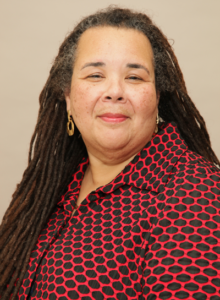
You Took My Jesus! or The Trouble With Certainty
Imagine this scenario:
“YOU TOOK MY JESUS!” said the first-semester student who is feeling displaced, disoriented, disappointed and enraged while being overwhelmed, even defeated, by the unexpected convergence of seminary courses’ too dense readings along with the absence of personal faith discourse in a progressive theological school.
“You must not have had much Jesus to take since you’ve only been here for three months!” said the professor of the introductory course who is feeling weary from students who are, from her vantage, ill-equipped for the study of the Christian religious experience on a graduate level in a progressive seminary classroom.
Ok, the scenario might be more telenovela than real-life discourse. I suspect both parties are too polite to actually hurl these feelings at one another. Painfully, I have witnessed watered-down versions of this eruption. Pastorally, I have been the confidant of each of these persons at separate occasions. On more than one occasion, confessionally, I have been the professor in this scene. Thankfully, in this particular scenario, I have not been the student – though I sympathize.
What is the catalyst for this explosion? What keeps these two persons from being able to hear one another? In this expressive exchange, what is to be learned for better teaching and better studenting?
My hunch is that what has sent each person into a state of distress is her own certainty.
In an age of uncertainty, professor and student, conveniently wear our certainty as armor protecting ourselves from too much change. Teachers want to teach with the irretractable certainty of disciplinary categories and students want the certainty of a non-critical religion. By the second year of seminary, students develop a “go along to get along” attitude – saying and writing what she thinks the professor wants to hear; the professor is unaware that students are pandering.
 Faculty persons trained in reductionist thinking are certain that the theoretical-disciplinary categories which are deployed in introductory courses are impervious to the scrutiny of a novice (i.e. student taking an introductory course). This kind of certainty leaves little room for students to do boundary crossing and personal faith exploration or nay-saying. The conventional system of knowledge, as presented in an introductory course, has no tolerance for resistance or rethought. Discomforts and disagreements signaled by students are often reduced by teachers to opinions, and then disregarded for being un-intelligent. The measure of student’s learning rests, with little equivocation, with the ability and willingness to metabolize the methods and the information.
Faculty persons trained in reductionist thinking are certain that the theoretical-disciplinary categories which are deployed in introductory courses are impervious to the scrutiny of a novice (i.e. student taking an introductory course). This kind of certainty leaves little room for students to do boundary crossing and personal faith exploration or nay-saying. The conventional system of knowledge, as presented in an introductory course, has no tolerance for resistance or rethought. Discomforts and disagreements signaled by students are often reduced by teachers to opinions, and then disregarded for being un-intelligent. The measure of student’s learning rests, with little equivocation, with the ability and willingness to metabolize the methods and the information.
First year students, certain that how they do faith is how faith is to be done; certain that they want to be affirmed for what they already know, with little tolerance/anticipation to learn anew; certain that seminary should be a reflection of their local congregation and denomination tradition - find themselves in uncharted locations while pursuing an academic degree in religion and theology. Too many students, in their certainty of faith, react to learning with clinched fists, knotted stomachs, and broken hearts. Jesus never went to seminary!
The journey of education for teacher and learner, as like the journey of faith, is better traveled with flexibility, agility, reciprocity and dexterity rather than rigidity and certainty. The two folks in this scenario are yoked/tethered/contracted together in the sacred relationship of teacher and learner. The very nature of a liberative pedagogy is to start with uncertainty and curiosity – aimed at being committed to a joint journey of discovery and deepening of knowledge for both parties…. easier said than done.
The late Dr. Gardener Taylor, master preacher, would spend a great deal of time crafting a written manuscript for his weekly sermons. Then, each Sunday morning, he would place the manuscript in the middle of his desk and leave it there while he went into the pulpit to preach. He was certain, but not in his own writing; he was certain, but not in his own thinking or even in his personal faith. His certainty was for the ability of the Spirit to take his preparation and, through him, convey to the people something much grander than he could muster. Like Rev. Taylor, let us teach with the certainty that we do not teach in vain; and let us learn with the certainty that our hard work and diligence will be pleasing in God’s sight. Perhaps, with Dr. Taylor’s example, we can come to depend less on our own misplaced certainty and rely more upon the certainty that the Holy Spirit will take our bit of faith and take our modicum of education for her own use in revealing the kin-dom of God. Of this I am certain.